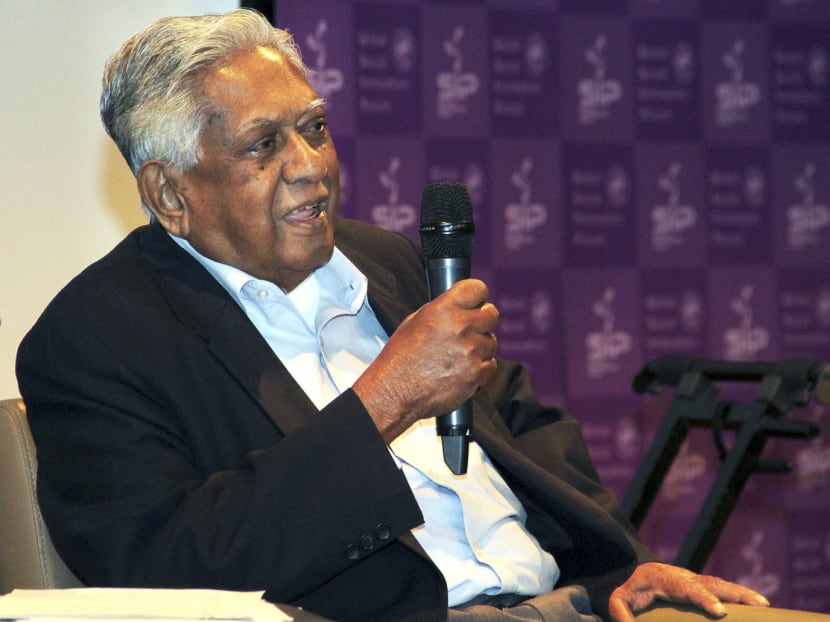S’poreans now need to ‘look after interests of others first’

Former Singapore President
S R Nathan, who was honoured with the SIP Distinguished Fellow award at the Global Social Innovators Forum, said the road ahead for social entrepreneurs will be a long one. PHOTO: Geneieve Teo
SINGAPORE — As Singapore moves into a new phase of development, strengthening the society will require a set of principles that run contrary to those that guide the economy, said Minister for Culture, Community and Youth Lawrence Wong yesterday.
Speaking at a plenary session at the Global Social Innovators Forum held at Institute of Technical Education College Centre, Mr Wong noted how the economy is built on economist Adam Smith’s principle, where maximising an individual’s interests and profits would see the marketplace work and function better.
“But if you use that principle to organise our society, and if we each go on our self-interests, there would (not be a) common ground to build a society and you will not have a strong and cohesive society,” said Mr Wong.
He added: “The society needs to operate on a different principle. It almost needs to operate on a reverse Adam Smith’s principle — that we need to look after the interests of others first.”
As Singapore enters a new phase, it will need to build upon and strengthen this culture of mutual support and sense of mutual responsibility towards one another.
“I think that’s at the heart of what inclusive innovation is about. It’s about innovating to expand the opportunities for others, particularly for the disadvantaged and vulnerable groups in our society,” Mr Wong said.
The forum, which brings leaders from various sectors around the world together to explore how social enterprises and innovations can create income and growth opportunities, was organised by Social Innovation Park (SIP), a non-profit organisation advocating social enterprise, and Global Shapers Community, an initiative of the World Economic Forum.
Accenture’s managing director of strategy and sustainability, Ynse de Boer, also shared his views on the inclusive innovation for the future — the theme for this year’s forum. Even though the society and economy are built on different sets of principles, Mr de Boer noted that there are overlapping areas where certain social issues can open up business opportunities.
Another panellist, paralympian William Tan, shared how a change in mindset helped him “become a product of social innovation”. Instead of being constantly frustrated at the lack of disabled-friendly amenities, Dr Tan said he decided to channel that energy towards something more positive, such as working with the ministries to improve the accessibility of buildings.
Technology Quotient chief executive officer Ayesha Khanna, also a panellist, said inclusive innovation begins by equipping people with the relevant skills and education. Career guidance should also be offered to the young to give them an idea of the industries of the future, she said.
Mr Wong also touched on the need for Singapore to build its volunteer management capabilities to encourage a culture of volunteerism. He noted that despite its importance, volunteer management capabilities remain quite uneven across the non-profit sector.
“It’s easy to say I want volunteers, but what do you do to provide a meaningful opportunity for the person who comes to volunteer? That’s an important area we are working on,” he said.
At a separate session with social entrepreneurs, former President S R Nathan, who was also honoured with the SIP Distinguished Fellow award at the forum, said their road ahead will be a long one and they will face impediments and failures from time to time, but they should not give up.
He also noted that Singaporeans are responsible for the country. “You have come to the promised land, but the road ahead is yours. You can either build it or you can destroy it. You can listen to all the advice from the four corners of the world, but ultimately the responsibility is yours,” he said.






